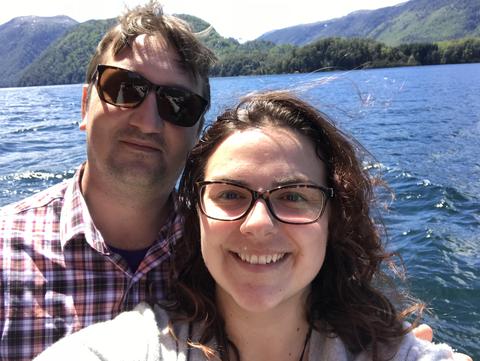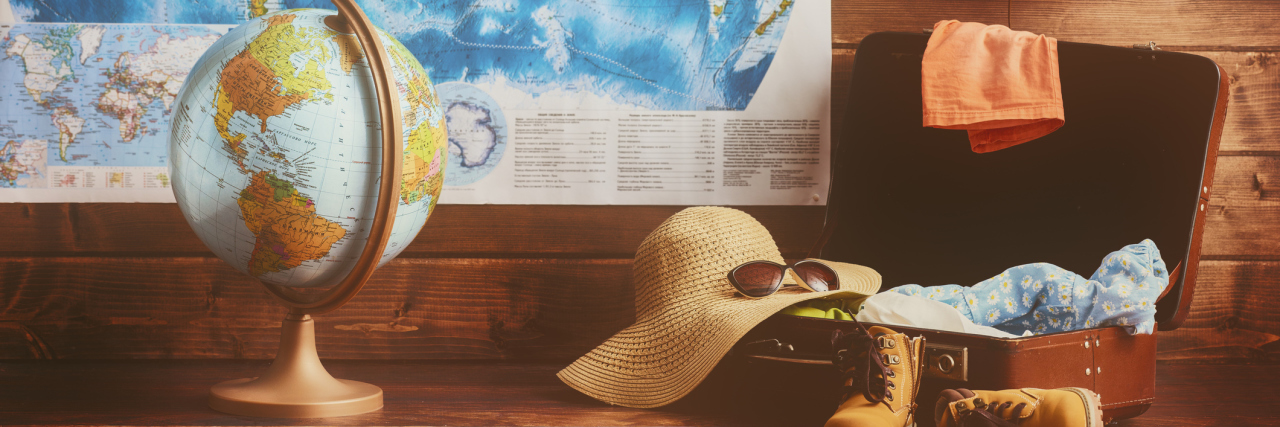I’ve just come back to Australia after four weeks away in Chile, Argentina and Uruguay with my husband. Some highlights included discovering waterfalls, drinking amazing red wine, seeing Candombe, and having a relaxing wine bath in Mendoza.
The most surprising and wonderful highlight of all was how few days my mitochondrial disease affected our trip. How many days I had without pain and fatigue, and some where I even forgot I had a chronic illness at all.
This is despite walking over 10,000 steps on a number of days – a lunar eclipse event in frequency when I’m at home.
I have mitochondrial disease, it robs my body of energy causing extreme fatigue and chronic pain. At home, I usually have planned and forced rest due to my body’s inability to produce the energy it needs to complete simple tasks. In the last year I’ve gone down to working part-time, working from home, and it also effects my mental health.
It’s important to keep in mind that your brain uses 20 percent of your body’s energy, so there’s a reason why you’re more likely to have a flare-up or be sick when you’re stressed, overworked and mentally run down.

I put the minimal symptomatic days down the planning process of our trip.
Our holiday involved quite a bit of travel and activities, but it really helped me learn about my body’s capabilities, and I have a few tips for other people who may be planning an escape.
1. Pick your places based on interest and capability.
We really wanted to see a glacier. You can usually see these with a hike, but that was out of reach for me with my condition. All the glaciers that were accessible via a very short walk were really expensive to get to. Instead, we opted for traveling to places that were less expensive but provided another exciting opportunity where we could be flexible based on my level of pain.
I am able to physically use stairs, so we booked a few interesting Airbnb’s that included kitchens and had their own private spaces. This allowed us to have some meals “at home” and have a welcoming, private space to rest in when needed.
2. Plan in rest days – just in case.
We opened our spread sheet itinerary and wrote in “rest day” when we thought would be good to plan rest in.
Along with cities to explore, we also made sure there were days where we were in relaxing locations or areas where there would be minimal energy expenditure. For example, after exploring galleries in Buenos Aires, we then went to Mendoza, where we hired a car and drove to a couple of wine tastings or lunches. This left us with time to relax and minimal energy expenditure.
3. Work out your non-negotiables.
With your travel partner(s), work out what is on the top of your list to see or do in each location. Spread these out over the days you’re in the location. This will help to reduce those days where you might use all those spoons at once!
4. Budget for how you travel.
How you get from A to B usually matters every day when you have a chronic illness anyway, so it might be obvious, but think about how you travel. In some locations hiring a car might be less stressful and cheaper than getting taxis everywhere, or maybe getting public transport is a genuine option because it’s quick, cheap and you’ll be traveling in non-peak hour. It’s worth being flexible in your transport options.
5. Keep communication open with your travel partner.
If you’re traveling with someone, have some clear communication rules about managing your illness. This might be as simple as just saying that you need rest and that the other person can explore and go to places you may not want to go to without you if they’d like. This relieves some of the guilt you experience when you’re unwell and feel like you’re holding people back. However, we found that my husband needed and enjoyed the rest time as much as I needed it.
6. Enjoy what others might not see.
One of the only positive things that has come from having mito is its affect of making me slow down and enjoy things that others don’t see. People with chronic illnesses may not be able to hike or climb a glacier, but we can enjoy those sunsets and appreciate the architecture and street art, purely with taking our time and seeing the world a little differently.
Now I’m back from holidays, I’m trying to keep some good habits and built on what I’ve learnt from my trip.
Have a wonderful holiday! I’m keen to hear what other tips people might have.
We want to hear your story. Become a Mighty contributor here.
Gettyimage by: Choreograph

